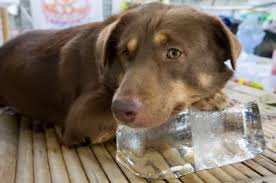
Our 24 Hr Pet Emergency Centres often see cases of trauma. As a Melbourne Animal Hospital that is Always Open, we understand what is required in such a pet emergency. If your pet is injured from a significant trauma, ensure you speak to veterinarian to ensure that X-Rays / Radiographs of the chest (Thorax) were taken. Even if your pet looks well after a trauma, you should have them checked.
Dr Jason Arlaud one of our team of emergency vets has summarised the following article for you from “Small Animal Critical Care” by Silverstein and Hopper.
Diaphragmatic hernias occur when there is a “hole” in the diaphragm. The diaphragm is a sheet of tissue that separates the thorax, where the lungs and heart reside from the abdomen where the: bladder, intestine, kidneys, liver, stomach and spleen reside.
Dogs and cats may be born with a diaphragmatic hernia (congenital) which is rare or develop one from an unknown cause (iatrogenic) or as a consequence of trauma.
Blunt trauma due to vehicular accidents, high-rise syndrome (falling from apartments) or dog fights are the most likely causes. Trauma accounts for eighty five percent of diaphragmatic hernias in dogs and cats. In traumatic diaphragmatic hernias usually one or more of the abdominal organs (stomach, liver, intestine etc.) has as a consequence of force, been pushed through the diaphragm into the chest, causing a tear in the diaphragm. Once one or more abdominal organs are in the chest there is the potential to affect the heart and lung’s normal function. This leads to difficulty getting enough oxygen into the body and the animal breathing at a faster rate. Complications may be fatal.
Animals that present to veterinary clinics and are subsequently diagnosed with a diaphragmatic hernias may vary in their breathing pattern from normal to struggling to breath (dyspnoeic). Their breathing may worsen hours after they were injured in some cases. Dyspnoeic animals will have a fast breathing rate, they may have their mouth open and neck stretched to try and get as much oxygen into their lungs as possible.
Organs most likely to be pushed through the diaphragm are: stomach, liver, intestine, omentum and spleen. The liver is the organ most likely to herniate. Most insults occur on the right side of the diaphragm possibly due to the stomach sitting on the left side and being gas filled it may cushion some of the force.
Diaphragmatic hernias are suspected when certain findings are observed on examination including: borborygmus (stomach sounds) over the chest, abnormal heart and lung sounds, displacement of heart, lungs or trachea by abdominal organs, pleural effusion or an incomplete diaphragm on radiograph and signs or history consistent with trauma.
Other associated injuries may include: pleural effusion, pulmonary contusions (bruising), pneumothorax (air in the chest cavity) chest wall disease (broken ribs).
What often kills a pet with such trauma is the damage that occurs to the lungs and lung tissue. Usually if a trauma was severe enough to rupture the diaphragm, it will have caused bruising to the lungs. If the lungs are severely damaged then pets can die, despite all treatment.
Treatment involves stabilisation from shock and eventual surgery. This type of injury is very painful and we do use a significant amount of pain medication. Our main concern in our Melbourne Animal Hospital is ensuring your pet is in the best possible condition for surgery to occur. Our 24Hr Pet Emergency Centres provide some of the most advanced monitoring equipment available. Our Blood Gas unit helps identify problems with their lungs. The tests are run as needed and we have the results available within 1 minute of collection. In the most severe cases we use a ventilator to help improve breathing and lung function. Ventilators are not common at most veterinary clinics and for diaphragmatic hernias they may make the difference between your pet surviving.
If your pet is involved in an accident then we urge you to have them checked by a Vet Now Open. We have two convenient locations for our Melbourne Pet Emergency Centres.
We are Always Open, We always CARE
Essendon Airport – Essendon Fields 9379 0700
Point Cook – 8368 7400

www.animalemergency.com.au












